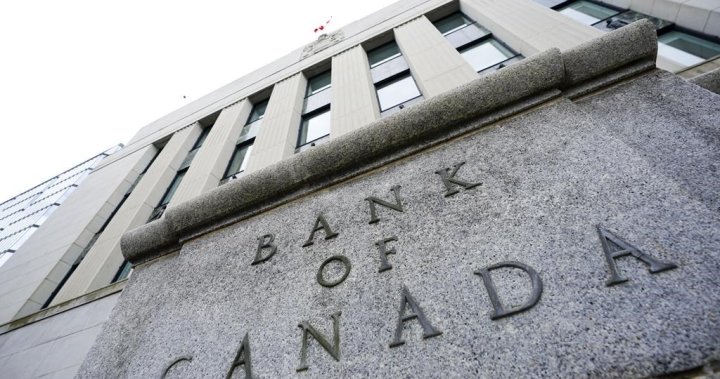Digital loonie? Bank of Canada wants your thoughts on potential new currency – National | Globalnews.ca
The Bank of Canada wants to know what Canadians think about the possibility of a digital loonie.
Consultations on what Canadians would like to have included in a digital currency are open online from May 8 until June 19, the Bank of Canada said Monday.
The central bank notes, however, that the decision to launch a digital version of the Canadian dollar remains in the hands of Parliament and physical coins and banknotes aren’t going anywhere.
Compared to private cryptocurrencies like Bitcoin, which can sometimes fluctuate in value like a stock, a digital currency backed by the central bank would not be subject to the same level of volatility — it would always retain the same value as a Canadian dollar.
The central bank wants to know how Canadians would use a hypothetical digital currency, as well as any concerns they have about security and accessibility.
While the Bank reassured Canadians in its announcement that physical banknotes will always be available to those who want them, it said in a release Monday there could be a future where cash transactions are not common in day-to-day banking, which could inadvertently exclude some from the financial system.
There is currently no need for a digital currency in Canada, the central bank said in the release.
But it added that if other central banks or private organizations eventually adopt their own digital currencies — China and India are two such countries that have already taken the step — falling behind could be a risk to Canada’s economy and the stability of the financial system.
“As Canada’s central bank, we want to make sure everyone can always take part in our country’s economy,” Carolyn Rogers, senior deputy governor at the central bank, said in a statement. “That means being ready for whatever the future holds.”
The Bank of Canada has been studying the possibility of issuing its own digital currency for much of the past decade, but the concept has garnered lots of attention within the government and political circles in the past few years.
Briefing notes prepared for Chrystia Freeland in January 2021 show public servants warned the federal finance minister about “wide-reaching implications for the economy” if the Bank of Canada adopted a digital currency, according to documents obtained by The Canadian Press.
Federal Conservative Leader Pierre Poilievre said in April of last year — before taking the reins of the party — that he would stop any plans for a digital currency if he became prime minister, arguing they were mechanisms that should be left to financial markets.
Poilievre also sparked controversy around cryptocurrency when he was campaigning for the party leadership last spring, branding the technology as a way for Canadians to “opt out of inflation.” Rogers refuted that claim in an appearance at the House of Commons’ finance committee in April 2022.
— with files from The Canadian Press, Reuters

© 2023 Global News, a division of Corus Entertainment Inc.
For all the latest Technology News Click Here




